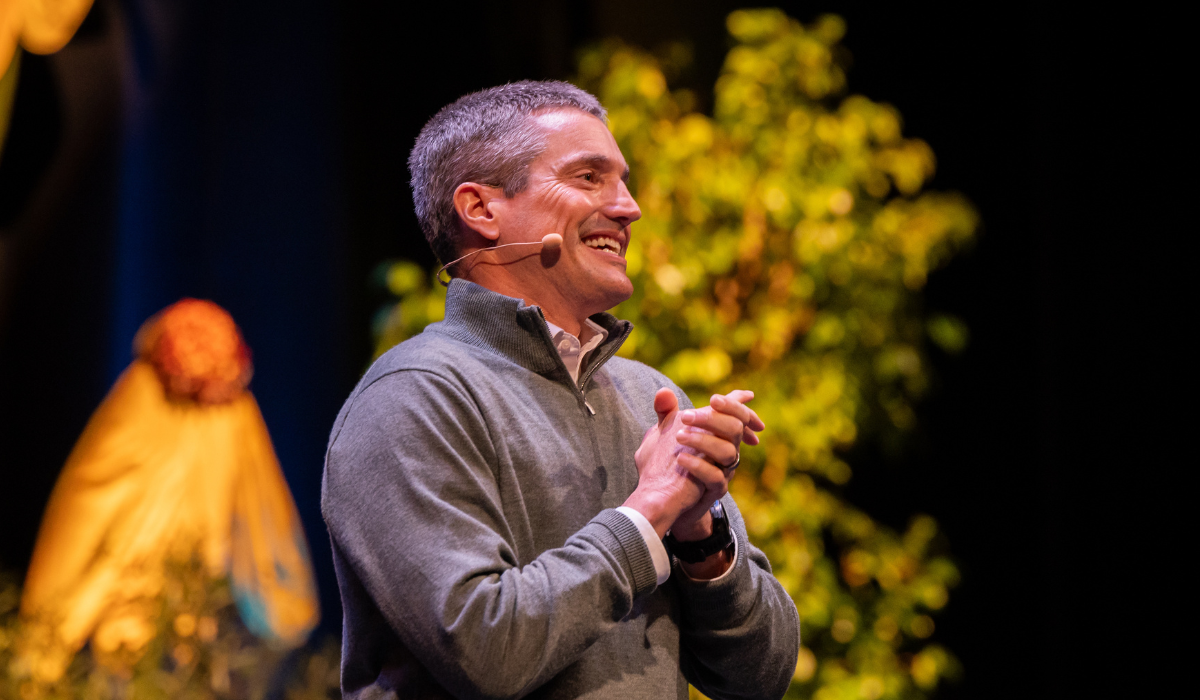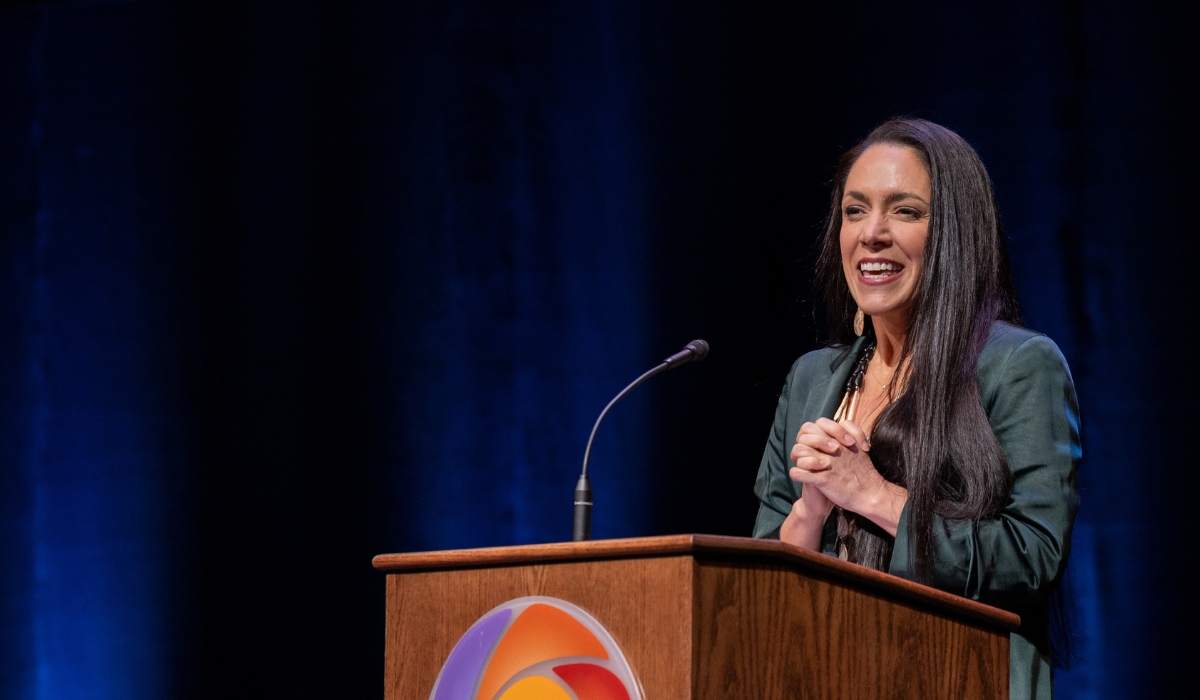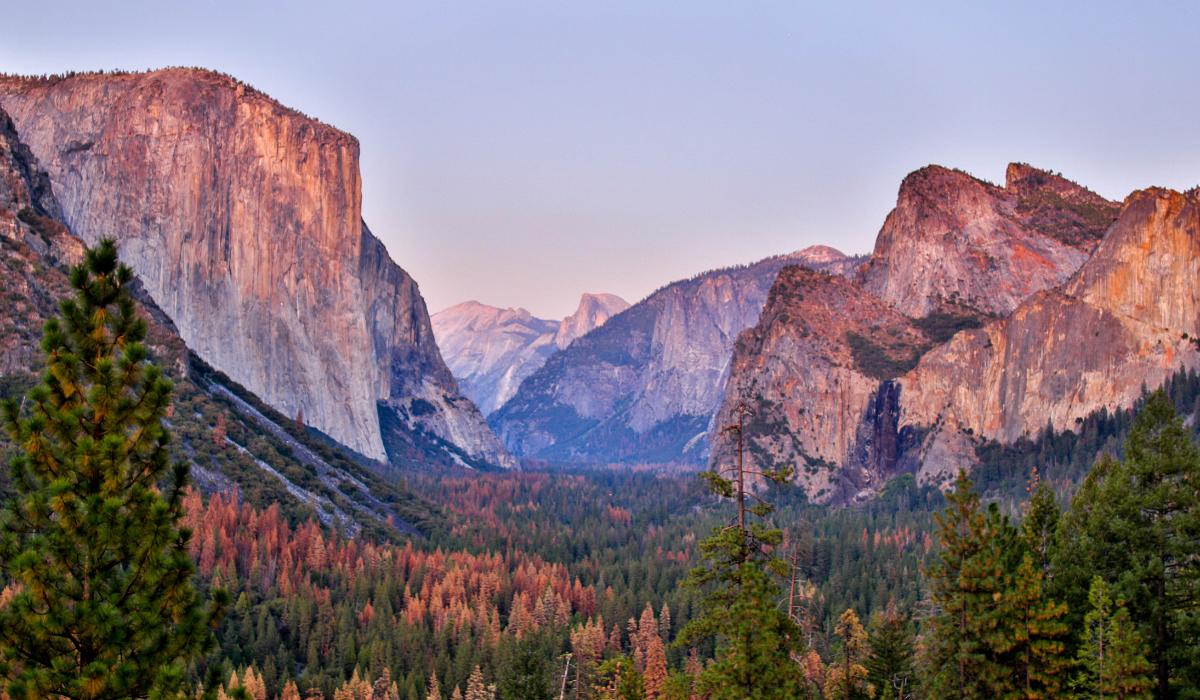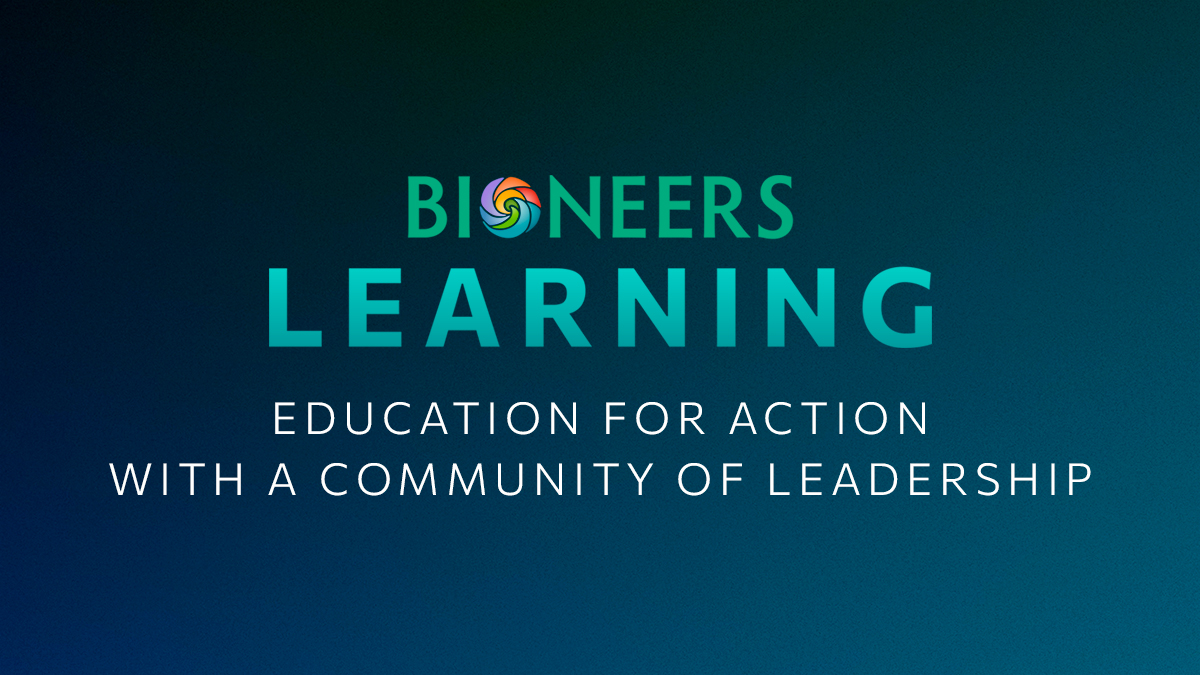Nature-Based Solutions: A Cornerstone of Climate Action
Bioneers | Published: June 18, 2025 Restoring Ecosystems Article
Intensifying wildfires, droughts, floods, extreme heat, and biodiversity loss from climate change are not tomorrow’s problems — they are at our doorstep today. But nature has an extraordinary capacity to recover when we give it the space to do so. When the Klamath River was undammed, it took only 10 days for the salmon to come back. Reintroduced species such as beavers, gray wolves, and California condors have begun to rebound. When we work with nature and not against it, the potential for restoration is vast.
By improving agricultural practices, restoring ecosystems, and integrating natural infrastructure into climate policy, we can enhance biodiversity, improve public health, and support sustainable communities. In this newsletter, hear from California Natural Resources Secretary Wade Crowfoot about the state’s commitment to nature-based solutions; from Indigenous rights and environmental advocate Amy Bowers Cordalis about the removal of dams on the Klamath River; and from three changemakers who are working to integrate land stewardship, conservation, and ecological restoration into California’s broader climate strategy.
Want more news like this? Sign up for the Bioneers Pulse to receive the latest news from the Bioneers community straight to your inbox.

Wade Crowfoot – California’s Leadership in Nature-Based Solutions: Building Climate Resilience Through Ecosystem Restoration
California’s Natural Resources Secretary Wade Crowfoot says nature is finding its way into the work of governments, not only in California but around the world. “I call it hope with an action plan,” he says. In his presentation, Secretary Crowfoot addresses California’s commitment to nature-based solutions as a cornerstone of climate action and the importance of continued investment and collaboration to protect people, economies, and ecosystems. Crowfoot shares how California is harnessing the power of nature to tackle climate change and build resilience against wildfires, droughts, floods, and extreme heat.

Amy Bowers Cordalis – The Water Remembers: Year Zero
In 2024, the removal of the four dams on the Klamath River marked a historic victory for an Indigenous-led movement, achieving the largest river restoration project in history. A revolutionary approach is underway, blending Indigenous knowledge, modern science, and sustainable practices, and the early results are remarkable — salmon are returning in unexpected abundance to spawning grounds that have been inaccessible to them for 100 years.
Amy Bowers Cordalis is a mother, fisherwoman, Executive Director of the Ridges to Riffles Indigenous Conservation Group and former General Counsel of the Yurok Tribe, which has played a major role in this struggle. In her presentation, she highlights the Indigenous values and lessons from the Klamath, showcasing nature-based solutions that heal the land, waters, and people while benefiting the economy. The goal is to restore the river as a living relative, ensuring its health for generations.

Putting the Land First: A Candid Conversation on Climate, Conservation, and California’s Future
As climate change intensifies, nature’s role in building climate resilience is moving from the margins to the center of public policy. In California, home to vibrant ecosystems and mounting climate threats, leaders are working to integrate land stewardship, conservation, and ecological restoration into the state’s broader climate strategy. With federal commitments in retreat, California’s bold approach offers a vital template for others to follow.
In this conversation, three changemakers working at the intersection of policy, land, and climate share their perspectives on what it takes to scale up nature-based solutions. Hear from Clesi Bennett, Senior Environmental Scientist at the California Natural Resources Agency; Torri Estrada, Executive Director of the Carbon Cycle Institute; and Juan Altamirano, Director of Government Affairs at the Trust for Public Land. Together, they explore the progress being made, the roadblocks still ahead, and why putting land first is essential to securing a just, livable future.
Giving Nature the Chance to Heal: More Nature-based Solutions from Bioneers
- Could you plant a forest in your neighborhood? The Miyawaki Method is helping communities around the world grow dense, biodiverse mini-forests—sometimes in just three years.
- Beavers once shaped entire ecosystems across North America—and they could again. Learn how these overlooked engineers are helping restore water, wildlife, and even wildfire resilience.
- From near-extinction to resurgence: this is the story of how Europe is bringing back its wild mammals—and what the rest of the world can learn.
- Rewilding isn’t just about bringing back wildlife—it’s about shifting how we relate to nature. This bold European movement is turning that vision into reality.

Upcoming Bioneers Learning Courses
Through engaging courses led by some of the world’s foremost movement leaders, Bioneers Learning equips engaged citizens and professionals like you with the knowledge, tools, resources, and networks to initiate or deepen your engagement, leading to real change in your life and community.
- Embracing Emergence As We Navigate the Winds of Change: Spiritual Teachings Inspired by Hurricane Helene | Sept. 3, 2025, 10:30 a.m.-1:30 p.m. PT | In this three-hour seminar, Zen teacher and spiritual activist Deborah Eden Tull invites us into an embodied exploration of presence, resilience, and sacred relationship.
- Fierce Vulnerability: Healing from Trauma, Emerging through Collapse | Sept 8-29, 2025 | This four-week interactive course offers a radical approach — merging nonviolent action, trauma healing, and spiritual practice to build movements rooted in connection and resilience.
- From Reactivity to Resilience: Responsive Leadership and Fractals of Healing | Sept 13-Oct 18, 2025 | Grounded in ReParentive® Therapy, this six-week interactive course explores how healing intergenerational trauma ripples outward to inspire change in relationships, communities, and systems. You will explore practical tools to regulate your nervous system, heal trauma, and discover how to lead from an embodied, authentic place. Pending approval, this course will offer Continuing Education Credit for therapists and other mental health professionals.
- Exploring the Resurgent Power of the Yin: Tao Te Ching Guided Reading Series | October 8–29, 2025 | In this four-week guided reading series, artist and spiritual-political practitioner Sonali Sangeeta Balajee and Ginny McGinn, Zen practitioner and process designer, invite us to explore the Tao Te Ching (Ursula K. Le Guin’s rendition) as a sacred companion for these hyper-Yang times.
- Putting Biomimicry Into Action in Your Profession and Life | Oct. 9-30, 2025 | Led by Andrew Howley, Chief Editor of the Biomimicry Institute, this four-week interactive course will equip you with the tools to reframe challenges through nature’s lens and turn inspired ideas into action.
- Rights of Nature 201: Moving Campaigns Forward | Nov. 6, 2025, 11 a.m.–2 p.m. PT | Designed as a continuation of Bioneers Learning’s four-week Rights of Nature course, this intensive session focuses on developing and advancing effective campaigns that push Rights of Nature laws forward—locally and beyond.
- Sacred Activism: Meeting our Challenges as Gateways for Cultivating Relational Leadership | Nov. 13-Dec. 11, 2025 | In this four-week live online course, you’ll explore sacred activism as a living practice that draws from your own lived experience, challenges, and discoveries.
- The Four Sacred Gifts: Indigenous Wisdom for Modern Times | Self-Paced | Discover how the Four Sacred Gifts of forgiving the unforgivable, unity, healing, and hope in action provide us with a path to our most grounded, loving, healed, and generous selves.
- Regenerative Agriculture: Nourishing the Soil, Healing the Planet | Self-Paced | Be enlightened on the practical applications and impressive potential that regenerative agriculture has to revive healthy landscapes; contribute to human and animal health; create an equitable food system; and help heal the climate.
